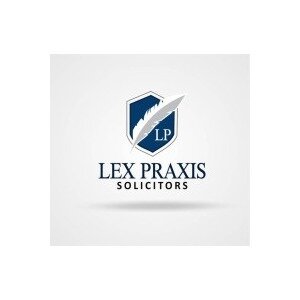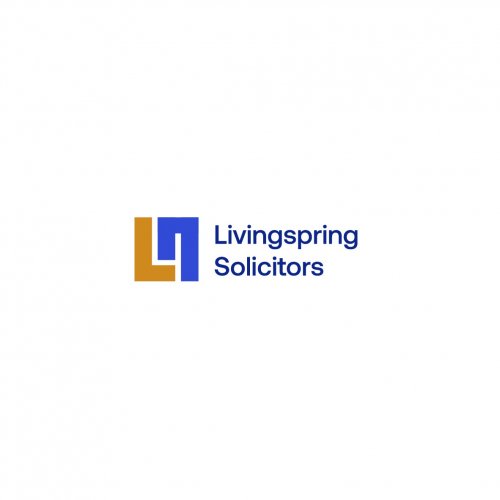Best Financial Services Regulation Lawyers in Calabar
Share your needs with us, get contacted by law firms.
Free. Takes 2 min.
List of the best lawyers in Calabar, Nigeria
About Financial Services Regulation Law in Calabar, Nigeria
Financial Services Regulation in Calabar, Nigeria, primarily involves the oversight and enforcement of rules governing financial institutions, markets, and transactions. These regulations aim to ensure the safety and stability of Nigeria's financial system. The regulatory framework is dominated by the Central Bank of Nigeria (CBN), which oversees banks and other financial institutions, and the Securities and Exchange Commission (SEC), which regulates the securities market. In Calabar, as in the rest of Nigeria, compliance with financial regulations is crucial for ensuring the smooth operation of financial services and protecting consumer interests.
Why You May Need a Lawyer
Understanding Financial Services Regulation is vital for anyone engaging in financial transactions or running a financial institution. Here are some common situations where you might need legal assistance:
- Setting up a financial institution or fintech company, which requires navigating complex licensing and registration processes.
- Ensuring compliance with anti-money laundering (AML) and counter-terrorism financing (CTF) laws.
- Responding to regulatory investigations or enforcement actions by financial authorities.
- Handling disputes related to financial contracts, including loans and investments.
- Understanding changes in financial regulations and their impact on business operations.
Local Laws Overview
Financial Services Regulation in Calabar is governed by several key local laws:
- **The Banks and Other Financial Institutions Act (BOFIA):** This act provides the legal framework for the regulation of banks and financial institutions in Nigeria, outlining licensing, operational requirements, and supervisory practices.
- **The Investments and Securities Act (ISA):** This act governs the regulation of securities, market operators, and investments to ensure market transparency and protect investors.
- **The Money Laundering (Prohibition) Act:** This legislation establishes the legal requirements for financial institutions to prevent, detect, and report money laundering activities.
- **The CBN Guidelines and Circulars:** These are regularly issued to provide specific directives or clarifications on financial regulations, prudential guidelines, and risk management practices.
Frequently Asked Questions
What is the role of the Central Bank of Nigeria (CBN) in financial regulation?
The CBN formulates and implements monetary policy, regulates banks and other financial institutions, provides financial stability, and ensures a sound and safe financial system.
How do I set up a fintech company in Calabar?
Setting up a fintech company involves registering the business with the Corporate Affairs Commission (CAC), obtaining necessary licenses from the CBN, and ensuring compliance with relevant financial and data protection regulations.
What are the penalties for non-compliance with financial regulations?
Penalties can include heavy fines, suspension or revocation of licenses, and, in severe cases, criminal proceedings against individuals or organizations.
What's the importance of Anti-Money Laundering (AML) laws?
AML laws prevent the financial system from being used to launder money from illegal activities. They require organizations to implement procedures to detect and report suspicious activities.
Is consumer protection a part of financial services regulation?
Yes, consumer protection is a significant aspect of financial regulation, ensuring fair treatment, disclosure of information, and protection against fraud.
Are there special regulations for insurance companies?
Yes, insurance companies are regulated by the National Insurance Commission (NAICOM), which establishes guidelines for their operation and ensures they meet financial stability criteria.
What is the role of the Securities and Exchange Commission (SEC)?
SEC regulates the securities market, including stock exchanges and any operations involving securities, to protect investors and ensure market integrity.
What recourse do consumers have if they face issues with financial service providers?
Consumers can lodge complaints with the financial institution, escalate to the appropriate regulatory body like CBN or SEC, or pursue legal action through courts.
How often do financial regulations change?
Financial regulations can change frequently to adapt to new economic realities, technological developments, or changes in governmental policy, requiring businesses to stay informed and compliant.
How can businesses stay compliant with financial regulations?
Businesses should regularly consult with legal experts, monitor updates from regulatory agencies, implement compliance programs, and train employees on regulatory requirements.
Additional Resources
Here are some resources and organizations that can assist:
- Central Bank of Nigeria (CBN): Oversees banking regulations and monetary policy.
- Securities and Exchange Commission (SEC): Regulates the securities industry and protects investors.
- Financial Reporting Council of Nigeria (FRC): Sets financial reporting standards for financial institutions.
- National Insurance Commission (NAICOM): Regulates and supervises the insurance sector.
- Legal Practitioners who specialize in financial services regulation.
Next Steps
If you require legal assistance in financial services regulation, consider these steps:
- Identify and consult with a lawyer who specializes in financial services regulation and has experience in Nigerian law.
- Gather all relevant documentation and information related to your legal matter.
- Discuss your legal options and potential outcomes with your lawyer.
- Maintain ongoing communication with your legal counsel to ensure regulatory compliance and protect your interests.
Lawzana helps you find the best lawyers and law firms in Calabar through a curated and pre-screened list of qualified legal professionals. Our platform offers rankings and detailed profiles of attorneys and law firms, allowing you to compare based on practice areas, including Financial Services Regulation, experience, and client feedback.
Each profile includes a description of the firm's areas of practice, client reviews, team members and partners, year of establishment, spoken languages, office locations, contact information, social media presence, and any published articles or resources. Most firms on our platform speak English and are experienced in both local and international legal matters.
Get a quote from top-rated law firms in Calabar, Nigeria — quickly, securely, and without unnecessary hassle.
Disclaimer:
The information provided on this page is for general informational purposes only and does not constitute legal advice. While we strive to ensure the accuracy and relevance of the content, legal information may change over time, and interpretations of the law can vary. You should always consult with a qualified legal professional for advice specific to your situation.
We disclaim all liability for actions taken or not taken based on the content of this page. If you believe any information is incorrect or outdated, please contact us, and we will review and update it where appropriate.










